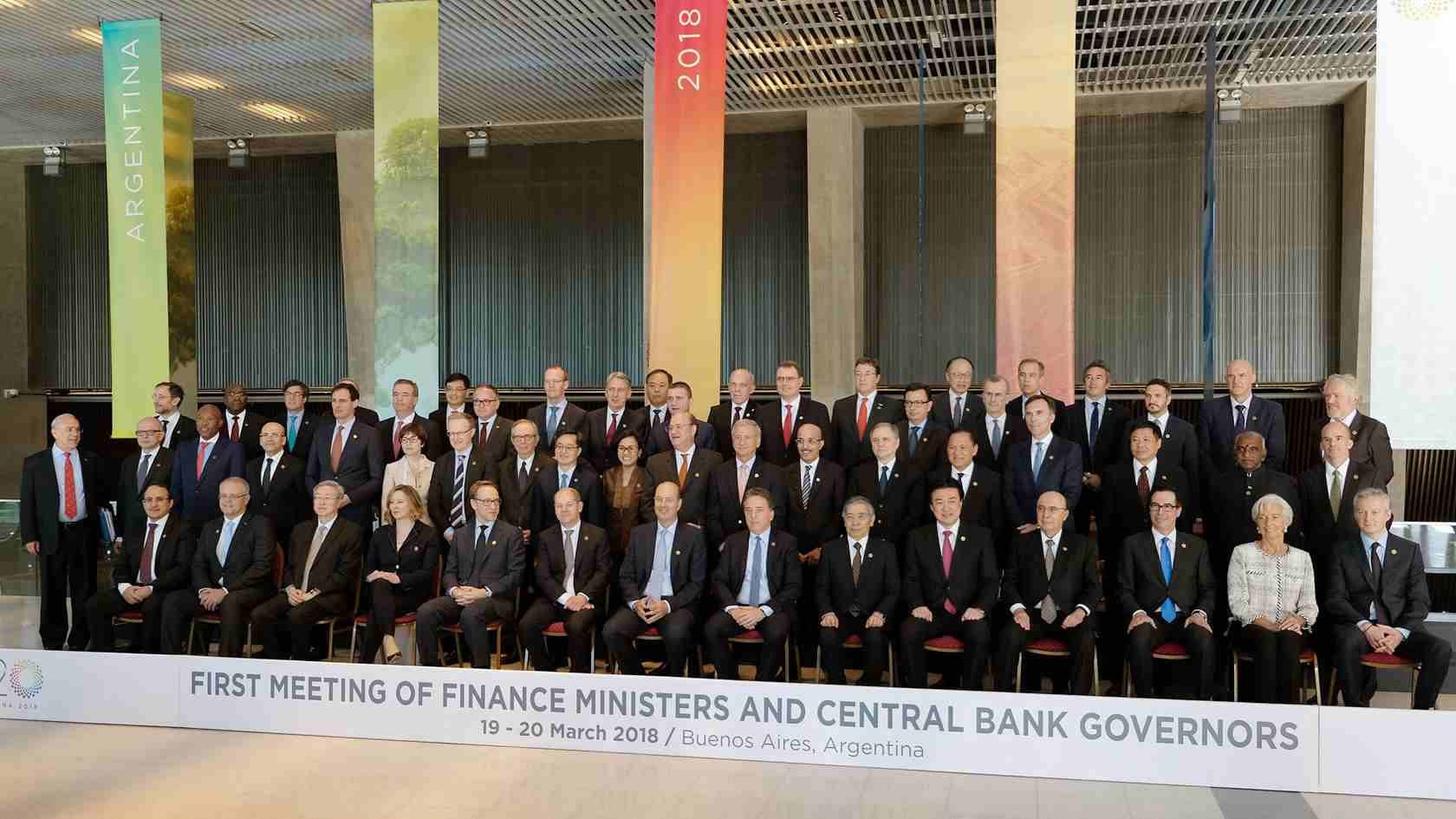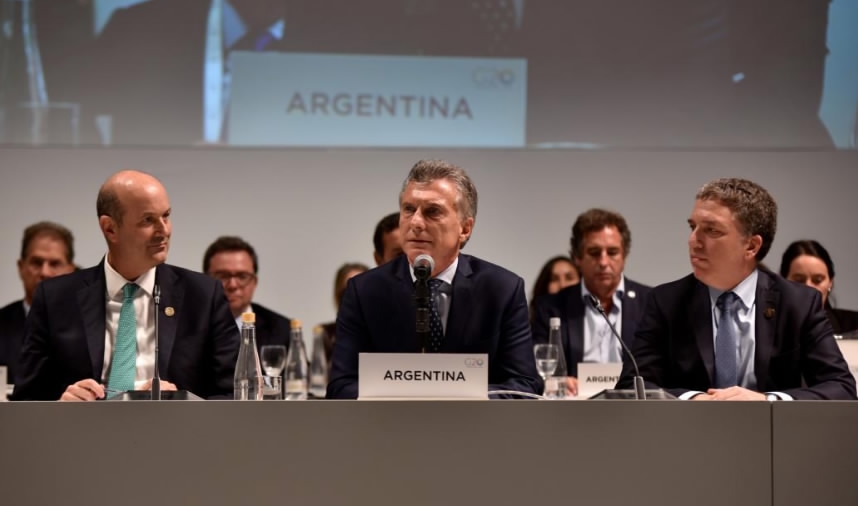
Business
11:32, 21-Mar-2018
G20 calls for 'dialogue,' fails to defuse trade war threat
CGTN

The world’s financial leaders rejected protectionism on Tuesday and urged “further dialogue” on trade, but failed to diffuse the threat of a trade war days before US metals tariffs take effect and Washington is to announce measures against China.
Finance ministers and central bankers of the world’s 20 biggest economies, which represent 75 percent of world trade and 85 percent of global gross domestic product, discussed trade disruptions as a risk to growth at a two-day meeting.
But after talks described by participants as “polite” and mainly consisting of read-out statements with no debate, the G20 agreed only to stand by an ambiguous declaration on trade from 2017 and “recognize” the need for more “dialogue and actions.”
“We reaffirm the conclusions of our leaders on trade at the Hamburg Summit and recognize the need for further dialogue and actions. We are working to strengthen contribution of trade to our economies,” the final G20 ministers’ statement said.
But the declaration did little to dispel concern over a global trade war as the United States’ tariffs of 25 percent on imported steel and 10 percent on aluminum take effect on Friday.
Two officials briefed on the matter said US President Donald Trump would also unveil tariffs on up to 60 billion US dollars in Chinese technology and telecoms products by Friday.
The 2017 Hamburg declaration, which the financial leaders referred to on Tuesday, said G20 countries would “continue to fight protectionism including all unfair trade practices.”
Former central bank governor, Zhou Xiaochuan, reaffirmed China's stance against protectionism during the meeting.
“We have said explicitly that we support multilateralism instead of bilateralism. We also said we are against trade protectionism and will continue to support a global free trade framework,” Zhou said.
China's stance was shared by most participants including those from the European Union. Roman Escolano, Spanish Finance Minister, said that protectionism is a “huge historic mistake.”
Zhou also noted that the international community should be confident about the multilateralism built over years, suggesting that trade disputes should be resolved in the multilateral framework within the WTO.

Argentina's President Mauricio Macri speaks alongside Argentina's Treasury Minister Nicolas Dujovne (R) and Argentina's Central Bank President Federico Sturzenegger at the G20 Meeting of Finance Ministers in Buenos Aires, Argentina, March 20, 2018. /Reuters Photo
Argentina's President Mauricio Macri speaks alongside Argentina's Treasury Minister Nicolas Dujovne (R) and Argentina's Central Bank President Federico Sturzenegger at the G20 Meeting of Finance Ministers in Buenos Aires, Argentina, March 20, 2018. /Reuters Photo
Canadian Finance Minister Bill Morneau, comparing this G20 meeting to the one in Germany last year when Mnuchin demanded a rewrite of the longstanding communique language on trade, said the rest of the world now has a better sense of the US view on how the rules of trade should be reworked.
“There’s not a consensus, everyone around the table doesn’t have the same point of view, but there’s a greater understanding of what it is they’re trying to achieve,” Morneau said.
Europe is ready to retaliate
The European Union, the biggest US trading partner, wants to be exempt from the metals tariffs like Canada and Mexico, but so far has not had any success.
The EU, as a result, is preparing retaliatory tariffs on US products ranging from bourbon and jeans to Harley-Davidson motorcycles.
European officials said a trade war would produce only losers and the G20 were united in support of “multilateralism” - G20 jargon for solving disputes through negotiations in the World Trade Organization.
“We all agreed trade wars are a negative sum game,” Bank of Italy Governor Ignazio Visco told reporters on the sidelines of the meeting. “There hasn’t been any voice against rule-based multilateralism.”
French Finance Minister Bruno Le Maire stressed Europe expected to get exemptions from the US tariffs without any conditions and warned protectionism would hurt world growth.
“It is of the utmost importance to avoid any unilateral choice that might jeopardize our growth. Unfair trade conditions, protectionism might jeopardize the economic recovery all over the world,” he said.
Mnuchin said he has had very direct conversations with his counterparts in China and that he looks forward to working with Liu He, China’s newly-installed, Harvard-educated vice premier in charge of financial and industrial policy, on getting better access to the Chinese market.
“I think there’s a general view among the G20 that it is our desire to see China open their markets so that we can participate in their markets the way they participate in ours in a much more reciprocal relationship,” Mnuchin said.
The G20 also called for continued international monitoring of cryptocurrencies such as bitcoin, and the risks they posed.
It said these assets raised issues with consumer and investor protections, market integrity, money laundering and terrorist financing.
(CGTN’s Zhu Feng contributed to the story)
(With input from Reuters)

SITEMAP
Copyright © 2018 CGTN. Beijing ICP prepared NO.16065310-3
Copyright © 2018 CGTN. Beijing ICP prepared NO.16065310-3